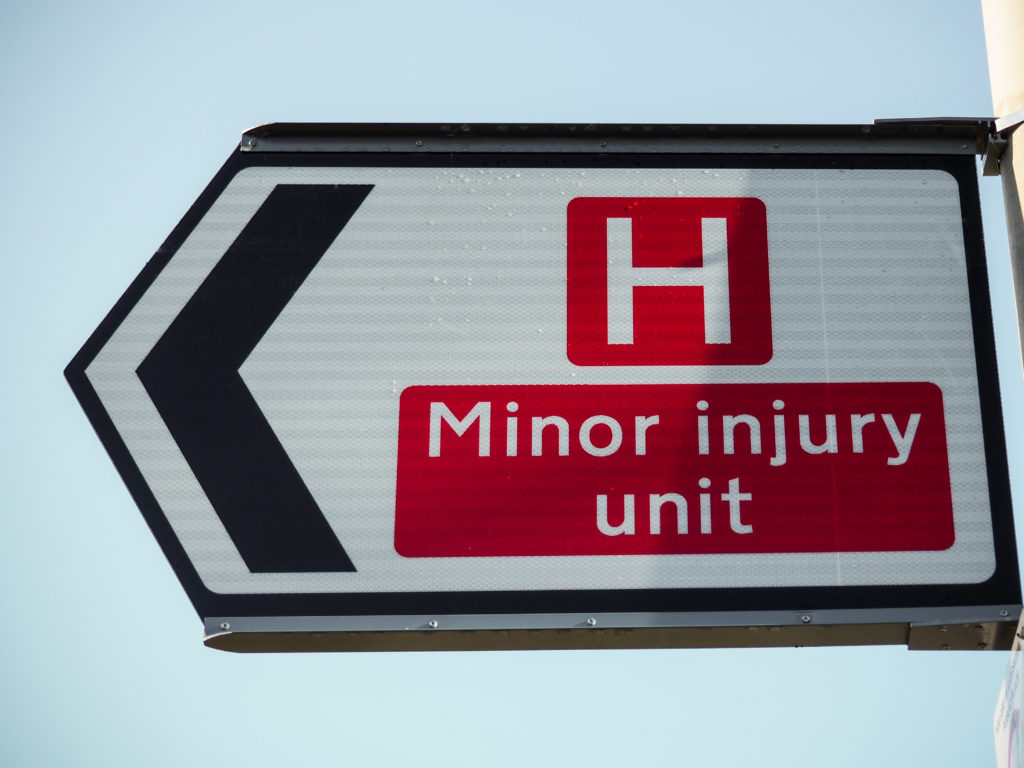-
Make sure you are registered with a GP (Family doctor). This is essential as they co-ordinate most healthcare, especially for long-term conditions.
- Make sure you're up to date with your vaccinations (especially HPV, MMR and Meningitis). Your GP practice can help with this.
- Download the NHS App to help manage your healthcare
- Register with a dentist to look after your teeth, and an optician to look after your eyes. You can get free dental & eye checks until you are 19 if you're in full-time education.
- Know where to get help if you are unwell or injured. More information on this below!
- Pharmacists are a great source of help for minor illnesses
- You can access many services directly without seeing your GP, such as sexual health & contraception clinics, and counselling services for mental health difficulties
- LGBTQ+ services and support.
Taking Charge of Your Healthcare as a Young Person
Welcome to your guide to healthcare! Gaining independence and taking charge of your own health is exciting, but it can sometimes be confusing to know where and how to get help - you’re not alone! This page is here to guide you in where to go, how to access the right support, and feel confident in making decisions about your health.
You don’t always need to see a doctor - there are many ways to get help depending on your situation including pharmacies, mental health support and sexual health services. Scroll down to find out where to go and how to take charge of your healthcare.
If it’s an emergency and you need urgent help call 999
Where Should I Go For Help?
There are lots of ways to get help and depending on what’s wrong you don’t always need to see a doctor. Choosing the right service to get help allows you to get the best care as quickly as possible.
Here's a summary of each service with some examples of when to use it:
| Service | Use for… |
Examples
|
|---|---|---|
|
Self-care |
Minor issues you can treat at home with rest, fluids, and over-the-counter medicine |
Coughs and colds, sore throat, period pain, mild headaches, grazes |
|
Pharmacy |
Quick advice and treatment for minor illnesses and help with medication |
Rashes, tummy bugs, emergency contraception, repeat prescriptions |
|
Mental Health Services |
Feeling low, anxious, overwhelmed, or struggling with daily life |
Anxiety, depression, self-harm thoughts, stress about school or life |
|
Sexual Health Services |
Confidential help with sexual health, contraception, and STI testing |
Getting the pill, STI screening, pregnancy tests, advice on relationships |
|
NHS 111 |
When you need urgent advice but it’s not a 999 emergency |
Unsure where to go, can’t get a GP appointment, need urgent medication |
|
Minor Injuries Unit (MIU) |
Injuries that need treatment but aren’t life-threatening |
Sprains, minor burns, suspected broken bones, small cuts needing stitches |
|
Urgent Treatment Centre (UTC) |
Illnesses or injuries that need urgent care but aren't emergencies |
Vomiting, ear/throat infections, rashes, UTIs, minor mental health concerns |
|
GP (Doctor) |
Ongoing or more complex health problems |
Asthma, long-term skin conditions, contraception advice, ongoing fatigue |
|
A&E / 999 |
Serious emergencies or life-threatening conditions |
Chest pain, breathing difficulty, serious injuries, unconsciousness |
Minor illnesses and injuries—like sore throats, cuts and grazes, headaches, coughs and colds, or stomach bugs—can often be treated at home.
Frimley Healthier Together is a great first port of call for advice on common conditions and injuries, helping you decide whether you can manage them yourself or need to see someone.
The NHS website Health A-Z also has lots of helpful advice on symptoms, how to treat them, and when to seek further support.
Most common illnesses last 1–3 weeks, but if you’re feeling much worse or not getting better, don’t hesitate to seek advice from a pharmacist, NHS 111, or your GP.

Pharmacists are expert healthcare professionals who can provide advice on minor health concerns and suggest medicines if needed. You don't need an appointment, and if you need further help they’ll also guide you on what to do next so they're a great starting place if you're unsure what to do.
You can find your local pharmacy by using the NHS pharmacy finder.
Pharmacists can help with:
- Minor illnesses – sore throats, coughs, colds, tummy troubles, aches and pains, conjunctivitis
- Medications:
- Advice on over-the-counter medicines
- Regular repeat prescriptions
- Safe disposal of unwanted medicines
- Sexual health:
- Emergency and oral contraception
- Screening for sexually transmitted infections (STIs)
- Support with healthy living – including stopping smoking, weight management and substance misuse
Pharmacy First: Get treatment without seeing a GP
Pharmacists can treat some conditions (including with prescription medicine) without you needing to see a GP. These conditions are:
- Sore throats
- Infected insect bites
- Earaches (children aged 1–17 years)
- Sinusitis (aged 12+ years)
- Impetigo
- Some urinary tract infections (women aged 16–64 years)
Most local pharmacies have private consultation rooms, so you can speak confidentially.

Life can feel like a rollercoaster at times, and it’s completely normal to go through ups and downs. But if you’re struggling with your mental health, you don’t have to deal with it on your own—there’s help available and you don’t have to wait until you're in crisis. Visit our mental health page for more information.
When to ask for help
Everyone feels sad, stressed or anxious sometimes, especially during big changes or stressful times like exams. But it’s a good idea to talk to someone if you:
-
Feel low, anxious, or overwhelmed a lot of the time
-
Struggle with sleep, eating, or concentration
-
Feel hopeless or like you’re not enjoying things anymore
-
Find it hard to cope with everyday life or friendships
-
Have thoughts of hurting yourself - visit HELP I'M IN CRISIS
Where can I get help?
-
Kooth (age 11-25) - a free, safe, and anonymous online mental health service for young people, offering counselling, articles, and peer support.
-
Your school or college - most schools have someone you can talk to, like a school counsellor, wellbeing officer, or trusted teacher.
-
Local Services - sometimes you can self-refer for free talking therapies without seeing your GP. Click here to find out what's available where you live.
-
Young Minds - a charity dedicated to young people's mental health with real stories, advice, and support
-
Your GP - if you're really struggling and think you need more support
Remeber that asking for help is a sign of strength, not weakness. Everyone struggles sometimes, and support is there when you need it.
If you are in crisis (you are upset and having thoughts or urges to hurt yourself, take an overdose or end your life) visit ‘HELP I’M IN CRISIS’
Call 999 if it's a life-threatening emergency.
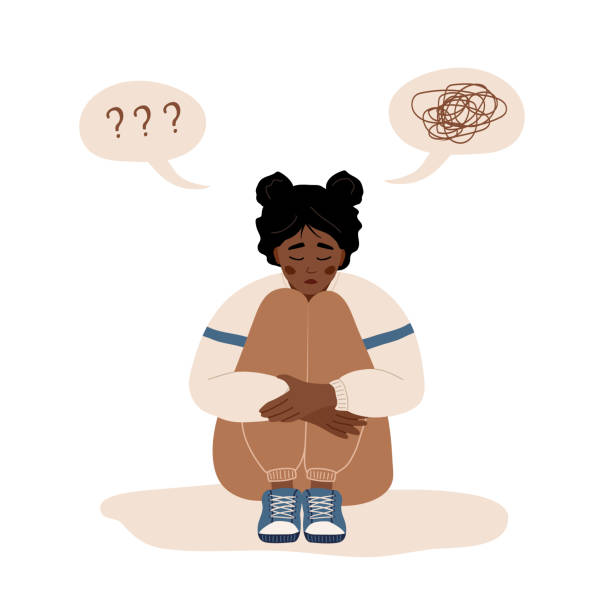
Looking after your sexual health is just as important as any other part of your health. Whether it’s contraception, STI testing, or just having questions, there’s help available—confidentially and without judgment.
Contraception is FREE and confidential for everyone, including people under 16.
Where can I go?
- sexual health clinics offer contraception and STI testing
-
find your nearest on the NHS website
-
you don't need a referral from your GP
-
-
ome pharmacies offer emergency contraception or STI screening—just ask your pharmacist
-
some GP surgeries - look on the website or talk to your GP or practice nurse
-
some young people's services - call the national sexual health helpline on 0300 123 7123 for more information
What can sexual health clinics help with?
-
Contraception – including pills, implants, injections, patches, and emergency contraception
-
STI testing & treatment – for things like chlamydia, gonorrhoea, HIV, and more.
-
Pregnancy testing and support.
-
Advice and support around relationships, consent, and safe sex.
Remember, whatever your concern, these services are there to help, not to judge. You're not alone, and getting support is a positive step in taking care of your health.
For more information on local services visit our page on Sexual Health for Young People.
Brook also has more information on contraception on sexual health.

NHS 111 is available 24/7 if you need urgent medical help and don’t know where to go but it’s not a life-threatening emergency. You can access NHS 111:
- Online at 111.nhs.uk (for people aged 5+)
- Via the NHS App
- By calling 111
How will they help?
NHS 111 will assess you and can arrange for you to speak to a nurse, doctor or paramedic if needed. They’ll advise you where to go for treatment, which could be:
- Self-care advice
- Your usual GP
- An out-of-hours of hours GP
- An urgent treatment centre
- The nearest A&E

If you have a minor injury, check the Frimley Healthier Together Injuries page first to see if you need medical attention.
If you need medical attention Minor Injuries Units can assess, diagnose and treat minor injuries such as:
- sprains and strains
- suspected broken bones or fractures
- minor head injuries (with NO loss of consciousness)
- cuts and grazes
- minor scalds and burns
Minor injuries units usually have much shorter waiting times than A&E and you don’t need an appointment, although you can contact 111 for advice and a time slot to attend to reduce waiting times.
Urgent Treatment Centres (UTCs) provide urgent medical help when you need care quickly, but it’s not life-threatening. They can diagnose and treat many injuries and illnesses that people often go to A&E for, and will send you to A&E if needed.
UTCs are typically led by GPs and open at least 12 hours a day every day. You may be referred by NHS 111 or your GP, and you can also turn up and walk in.
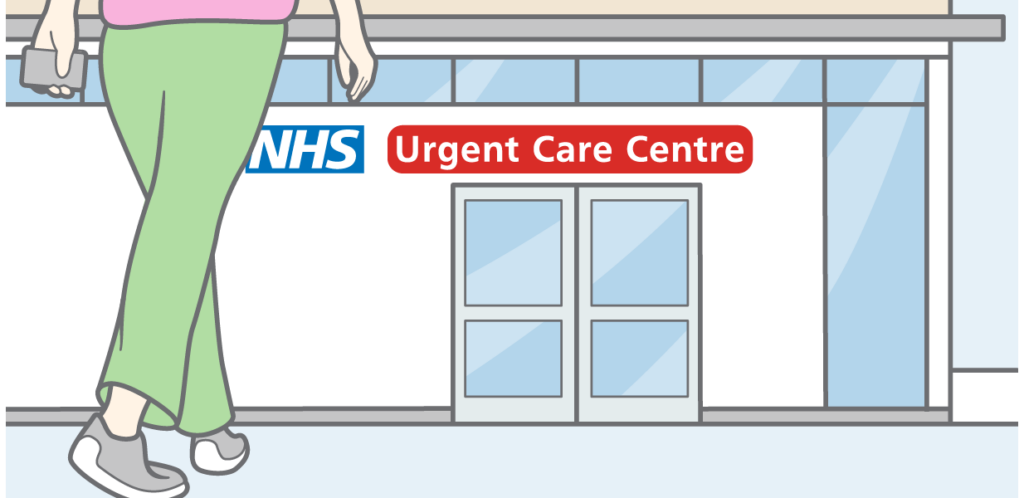
UTCs can help with:
- sprains, strains or suspected broken bones
- cuts and bruises
- stomach pain, vomiting and diarrhoea
- high temperatures
- skin infections and rashes
- eye problems
- ear or throat infections
- mental health concerns
- emergency contraception
GPs can help with any ongoing physical or mental health problems that are worrying you.
Remember you don't always need to see a GP as your first port of call - lots of the services above can help with common problems and will tell you if you need to see a GP
When to see a GP:
-
You’ve tried self-care or seeing a pharmacist but things aren’t getting better
-
You have symptoms that aren't going away or improving after a few days
-
You need help with a long-term problem or health condition
Making an Appointment
- Every GP practice works slightly differently so check your GP practice website to find out the best way to book an appointment. For most practices, this will be by:
- calling the practice
- filling in an online form
- booking on the NHS app.
- You can ask for a phone or face-to-face appointment
- You can request a male or female GP.
- You may be asked the reason for the appointment to help you see the right person, but you don’t have to explain this if you don’t want to.
Confidentiality
- You can visit or speak to a GP at any age, and don’t have to bring a parent or carer if you don’t want to.
- Once you're 16 you have the right to make your own medical decisions
- you may still be able to if you're under 16 if the GP thinks you understand enough to make a decision.
- Healthcare workers are not allowed to tell your parents anything you have talked to them about without you agreeing.
- They might encourage you to tell your parents yourself, but they cannot force you to.
- The only exception is if they think you or someone else is at risk of serious harm, and they should discuss this with you first.
Seeing a Different Doctor
Most doctors are great at their job but occasionally people might not get on with or feel uncomfortable with their doctor. You can always ask to see someone else but may have to wait for another appointment.
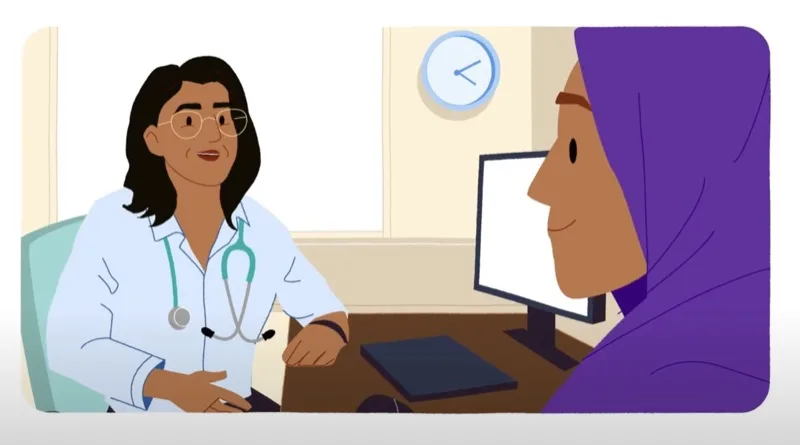
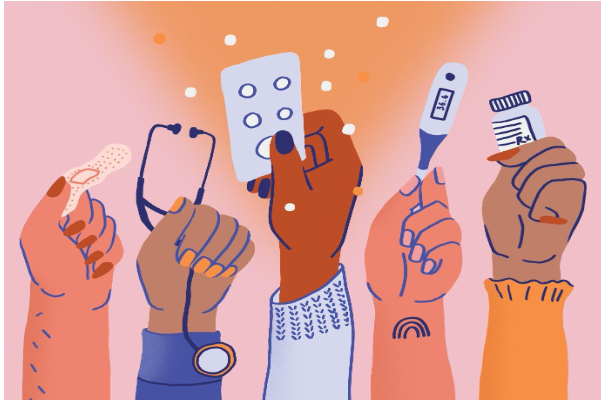
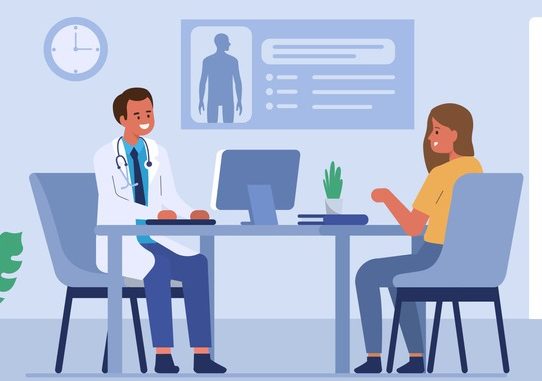

A&E and 999 are only for medical emergencies: when someone is seriously ill or injured and their life is at risk.
It's really important that we all only go to A&E when it's a real emergency so people who need life-saving care can be seen quickly.
Less severe injuries can be treated in urgent treatment centres or minor injuries units
A&E is not an alternative to a GP appointment - if your GP is closed you can:
- use NHS 111 which will direct you to the best local service
- go to an urgent treatment centre for minor illnesses
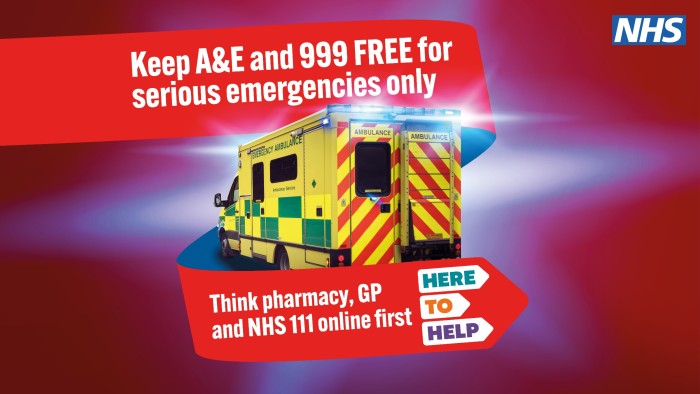
Examples of medical emergencies - call 999 immediately:
- heart attack or stroke
- loss of consciousness, sudden confusion or fits that are not stopping
- breathing difficulties or choking
- severe bleeding that cannot be stopped
- severe burns or scalds
- major injuries such as a road traffic accident
A prescription is a written instruction from a healthcare professional (usually a GP, nurse, or pharmacist) that allows you to get a specific medication from a pharmacy.
Top Tips:
- Keep a list of any medications you take – the NHS App is great for this
- Speak to your pharmacist if you’re unsure how to take your medication or have any side effects.
- Don’t stop or change medication without speaking to your GP or pharmacist first.
Cost
Prescriptions are free for everyone age under 18, or under 19 and in full-time education.
You may also be able to get free prescriptions if you have certain medical conditions, are pregnant, or receive specific types of government support. Check whether this applies to you on the NHS website here.
If you aren't eligible for free prescriptions and have a lot of prescriptions, a Prescription Prepayment Certificate (PPC) could save you money. A PPC is like a season ticket – you pay once for 3 or 12 months and it covers all your NHS prescriptions during that time. Find out more here.
Collecting a Prescription
Prescriptions are usually sent electronically from your GP or nurse to a nominated pharmacy (a pharmacy you choose).
- You might be able to collect it on the same day, but it’s best to check using the NHS App or by calling the pharmacy.
- Someone else can collect your medicine for you – they’ll just need your name and address.
- You can change your nominated pharmacy in the NHS app or by asking your GP - pick the one that's easiest to get to
You can also use an online pharmacy which posts your medicines to your home.
- Make sure the pharmacy is properly registered with the General Pharmaceutical Council (GPhC), and they should only send you the medication once they've received your prescription.
- Be careful as some unregistered online pharmacies may send wrong or even fake medicines.
Getting Repeat Prescriptions
If you're on long-term medication you might get a repeat prescription so you don’t need a GP appointment every time you need more.
Ordering a repeat prescription may take up to a week, so plan ahead. Each GP surgery does things slightly differently so check their website, but common ways to order include:
- Using the NHS App or your GP’s online system
- Asking your pharmacy (some offer a repeat request service)
- Contacting your GP by phone or email
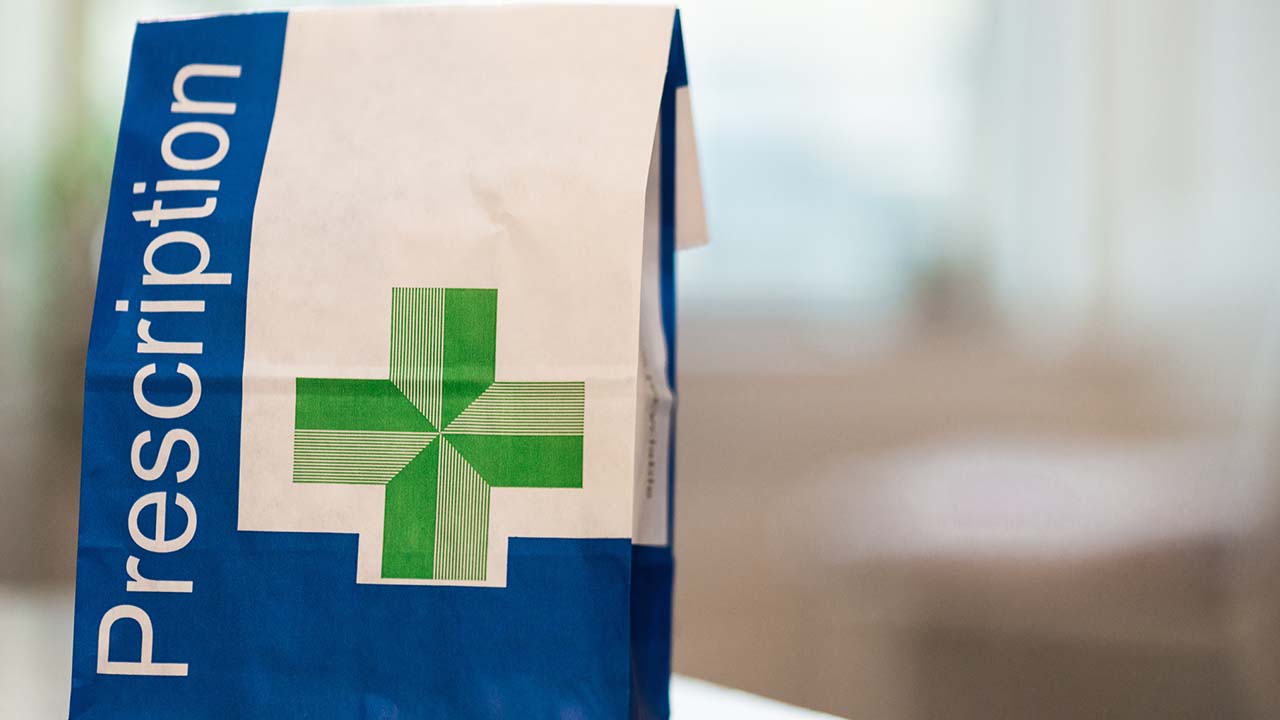

If you’ve been receiving care from children’s or young people’s health services, you’ll usually start moving to adult services around age 16–18. This process is called transition.
- Transition is particularly important if you receive regular care and have long-term conditions
- Transition helps you to become responsible for your care and make decisions about your care.
It’s completely normal to feel a bit unsure about this change — but the goal is to make sure you keep getting the right support as you grow up and become more independent with your healthcare.
When does transition happen?
Planning for transition usually starts around age 14-16 with the actual move to adult services between age 16-18 but every service is slightly different
What to expect?
Your team will create a transition plan to help you get ready for adult care gradually. Your plan may include:
- Helping you understand your condition or treatment
- Preparing you for adult clinics and appointments
- Making sure you know where to go for help if you need it
What changes in adult services?
One of the biggest differences is how independent you’ll be:
- Doctors and nurses will speak directly to you, not just your parent or carer
- You might be asked to book your own appointments, talk about your health, or manage your medicines
- You can choose whether you want a parent or carer with you at appointments — or to go alone
- Adult services also have more experience in talking about adult issues like employment, travelling and sexual health
It can feel like a big step, but you won’t be expected to do everything at once — and your team is there to support you.
- if you're feeling nervous you can speak to your parent / carer, school nurse, specialist team or GP
Why do I have to move?
As you get older, your healthcare needs may change. Adult services are:
- Run by professionals trained to care for adults
- More focused on helping you be independent and take responsibility for your health
- Better equipped to help with areas like employment, university life and independent living
You might also prefer to be cared for in a more grown-up environment, rather than children’s wards or departments.
Digital Tools
The NHS APP
The NHS App is a free, secure app that helps you manage your health and access NHS services from your phone or tablet. It’s super useful if you're starting to take more responsibility for your healthcare.
What can you do with the NHS App?
What you can do with the NHS app varies depending on your GP surgery, but for most GP surgeries you can:
- Book and manage GP appointments (most but not all surgeries)
- Order repeat prescriptions and track when they're ready
- View your medical record, including test results and allergies
- Get health advice via links to the NHS website
- Check your NHS number
How to get it:
- Search "NHS App" on the App Store or Google Play
- Set up an NHS login - you may need to take some ID (e.g. a passport or driving license) to your GP surgery to do this
- Use your NHS login to sign into the app
The NHS website has more information on how to set this up here. If you’re under 16, you might need to speak to your GP surgery to get access.
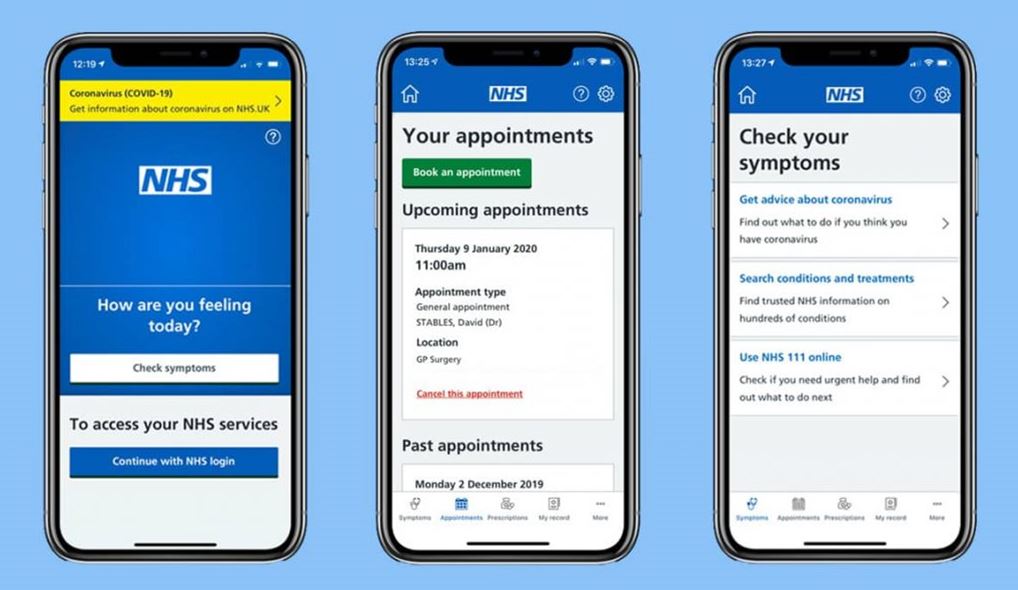
Healthier together app
The Frimley Healthier Together app is a free app that gives you trusted NHS advice about common health problems and how to get the right help when you need it.
It’s great if you’re not sure:
- If you need to see someone
- Where to go for help
-
What to do while you wait
Why use it?
- Clear advice on symptoms and conditions specially created for young people
-
Built by local NHS teams who understand what's available where you live
How to get it:
- Search "Healthier Together" on the App Store or Google Play
- Choose Frimley Healthier Together in the app when setting it up




